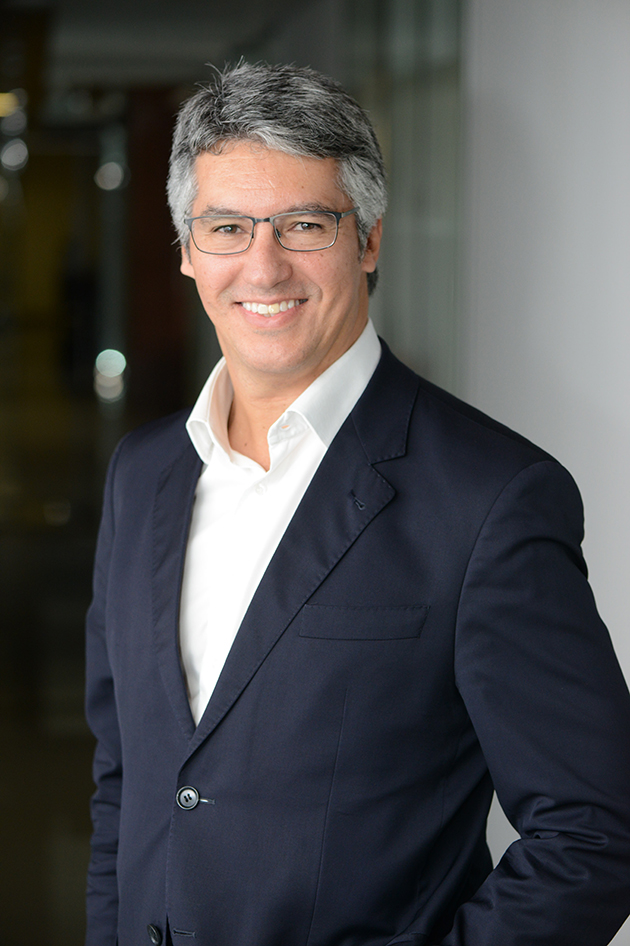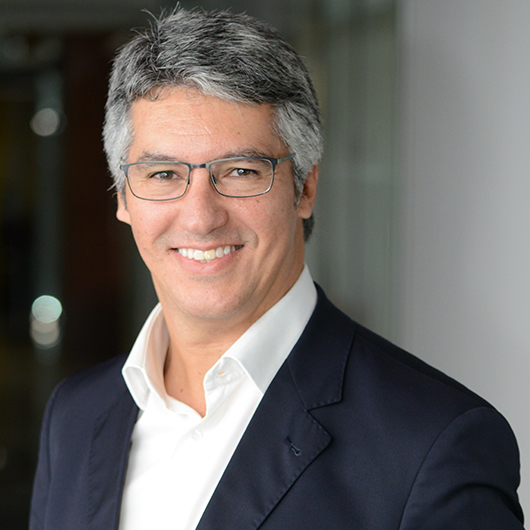Conteúdo disponível em português e inglês
TTR DealMaker Q&A con Carlos Lobo, sócio do Veirano Advogados

Carlos Lobo – Veirano Advogados
É sócio do Veirano Advogados e atua principalmente nas áreas de fusões e aquisições, private equity e mercado de capitais. Carlos atua predominantemente nas área de energia, infraestrutura e Telecom/Tecnologia. É formado em direito pela Universidade do Estado do Rio de Janeiro e possui mestrado pela Columbia University em Nova Iorque.
TTR: As fusões e aquisições em 2020 tiveram um primeiro trimestre “recorde” no Brasil, mas no início da crise de saúde COVID-19, a tendência mudou consideravelmente: como você descreveria a situação atual dos players no mercado transacional no Brasil nesta “Nova Realidade”?
C. L.: Passado um primeiro momento de incerteza no começo da pandemia, quando várias operações de Fusões e Aquisições foram suspensas, o mercado começou a reaquecer a partir de junho, principalmente liderado pelos fundos de Private Equity nacionais e estrangeiros. Este segundo semestre está bastante aquecido com um perfil variado de players e setores, mas observa-se uma predominancia dos fundos de Private Equity e companhias abertas como compradores. Setores como tecnologia e energia renovável foram menos afetados que os demais e mantiveram um volume considerável de operações ao longo de todo o ano.
TTR: Veirano Advogados é um dos principais assessores de M&A do setor de tecnologia do Brasil de acordo com o ranking jurídico do TTR. Como você avalia o crescimento do setor em 2020 e quais as perspectivas de médio e longo prazo?
C. L.: Este movimento não começou este ano. O setor de tecnologia vem sendo um dos mais ativos em termos de Fusões e Aquisições no Brasil nos últimos cinco anos e acredito que esta tendência deva continuar pelos próximos anos. Vários fatores explicam esse fenômeno. Em primeiro lugar, uma questão cultural, tendo em vista que brasileiros, quando comparados a outros países, passam bastante tempo na internet e são consumidores habituais por meio de e-commerce. Em segundo lugar, o uso disseminado de smartphones e o bom nível de banda larga nos grandes centros permite a realização de transações digitais. Esse ambiente é favorável ao surgimento de variadas empresas do setor de tecnologia. Além disso, o perfil empreendedor do brasileiro, que tem boa formação técnica, aliado a uma indústria de Venture Capital bastante ativa, tem contribuído para esse movimento. Por fim, o surgimento de diversas fintechs no Brasil tem impulsionado o processo de aquisições no setor tecnologia para o setor financeiro.
TTR: Quais as três mudanças mais importantes que o mercado de fusões e aquisições pode apresentar no Brasil para o quarto trimestre e início de 2021? Quais setores poderiam oferecer maiores oportunidades para investidores com potencial financeiro?
C. L.: Não vejo grandes mudanças no setor até o final do ano e começo de 2021. Acho que setores como tecnologia, energia renovável, saúde e serviços financeiros devem continuar entre os mais ativos.
TTR: Considerando sua experiência em Private Equity, como você espera que esse tipo de investimento evolua em 2021?
C. L.: Acredito que os fundos de Private Equity devem continuar bastante ativos em 2021. Eles estão bem capitalizados e a atual conjuntura econômica, com empresas em situação financeira difícil combinada com a desvalorização da moeda, tem resultado em um número elevado de oportunidades para os fundos.
TTR: Como você descreveria as medidas tomadas pelo governo brasileiro para enfrentar a crise empresarial causada pelo impacto do combate à COVID-19? Que outras medidas são necessárias no curto prazo para garantir a recuperação econômica?
C. L.: Acho que faltou uma atuação mais coordenada do governo federal para evitar o elevado número de casos no Brasil e um apoio maior para as empresas que estão enfrentando dificuldades financeiras. Acho que o governo deveria impor maiores restrições para evitar a aglomeração de pessoas e reduzir o número de casos e criar um programa de apoio às empresas dos setores mais afetados, como hotelaria, restaurantes e companhias aéreas.
Versão em inglês
Carlos Lobo – Veirano Advogados
Carlos Lobo is a partner with the Firm and focuses his practice on mergers and acquisitions (M&A), private equity investments and capital markets. He is a specialist in the energy, infrastructure and Telecom/Technology sectors. He graduated from law school from the Rio de Janeiro State University and has an LLM from the Columbia University Law School.
TTR: Brazil registered record M&A activity 1Q20, but the trend changed considerably with the onset of the COVID-19 health crisis: how would you describe the current M&A situation and outlook in Brazil?
C. L.: After the first moment of uncertainty at the beginning of the pandemic, when several transactions of mergers and acquisitions were put on hold, the market has rebounded from June on, especially led by domestic and international private equity funds. This second semester is very busy with a different profile of players and sectors, but it is observed a predominance of private equity funds and public companies as buyers. Sectors like technology and renewable energy have been less affected and remained active throughout the year.
TTR: Veirano Advogados is one of the main advisors on M&A in the Brazilian technology sector, according to TTR’s legal ranking. How do you evaluate the sector’s growth in 2020 and what are the medium and long-term perspectives?
C. L.: This trend has not began this year. The technology sector has been one of the most active in terms of Mergers and Acquisitions activity in the past five years and I believe that such trend shall continue for the coming years. Many factors explain such phenomenon. In first place, a cultural aspect, since Brazilians, when compared to other countries, spend a significant time on the internet and are regular consumers through e-commerce. In second place, the ample use of smartphones and the good availability of broadband in the main centers are beneficial for digital transactions. These factors create a favourable environment for the development of technology companies. Also, Brazilians are entrepreneurial and have good technical formation, which allied to an active venture capital industry have contributed for such trend. Finally, the emergence of fintechs in brazil have contributed to the increase of acquisitions in the technology sector related to financial services.
TTR: What are the three most important changes that the M&A market will undergo in Brazil in 4Q20 and early 2021?Which sectors should investors with ample firepower be focused on?
C. L.: I do not anticipate any major changes in the m&a market until the end of this year and the beginning of 2021. I believe that technology, renewable energy, health care and financial services will remain among the most active sectors.
TTR: Considering your experience in Private Equity, how do you expect this type of investment to evolve in 2021?
C. L.: I believe that the Private Equity funds will continue to be very active in 2021. They are well capitalized and the current macroeconomic situation, with companies in financial distress combined with the devaluation of the currency, have resulted in a elevated number of opportunities for the funds.
TTR: How would you describe the measures taken by the Brazilian Government to support the business community in the wake of the instability caused by the fight against COVID-19? What additional measures are needed in the short term to ensure economic recovery?
C. L.: I believe that the federal government should have better coordinated the efforts against the pandemic to reduce the number of cases and to offer better support to companies in financial distress. It should impose social distancing and other restrictions to reduce the numbers of cases and create a program of support to the companies of sectors greatly affected, like hotels, restaurants, and air carriers.
